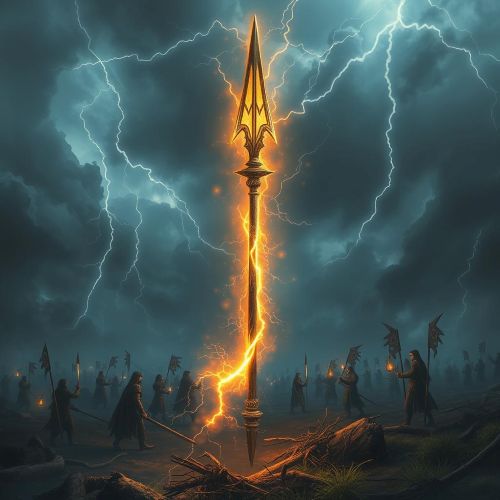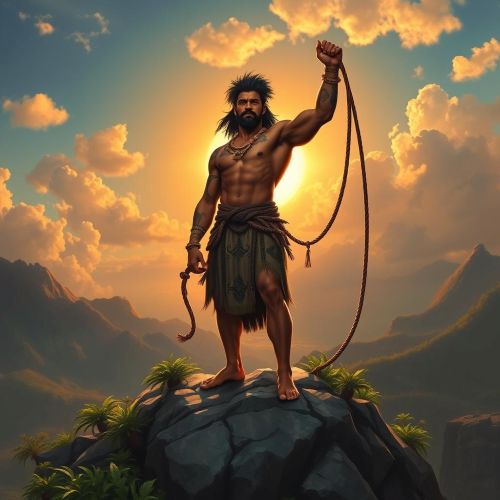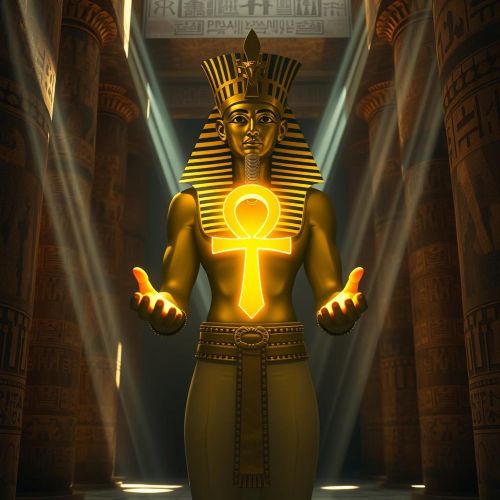Zeus vs Jupiter: A Mythological Showdown of the King of Gods
In the realm of ancient mythology, Zeus and Jupiter stand as towering figures, revered as the kings of gods in their respective cultures. These deities have captured the imaginations of millions throughout history, each embodying similar yet distinct characteristics within Greek and Roman mythology. This exploration of “Zeus vs Jupiter” delves into their origins, roles, and influences, shedding light on the fascinating connections and differences between these iconic figures.
Origins and Mythological Background
Zeus originated in Greek mythology as the supreme deity of Mount Olympus, the home of the gods. His birth was a significant event, marked by the overthrow of his father, Cronus. Cronus had feared a prophecy that one of his children would dethrone him, so he swallowed each of them at birth. However, Zeus was saved by his mother, Rhea, and hidden away on the island of Crete. When he reached adulthood, Zeus returned, freed his siblings, and led a rebellion against Cronus, eventually claiming his position as the ruler of the gods.
Jupiter, on the other hand, emerged from Roman mythology, which was heavily influenced by Greek traditions. The Romans identified Jupiter with Zeus, incorporating many of the Greek myths and adapting them to fit their cultural context. Jupiter’s story parallels Zeus’s, involving the defeat of the Titans and the establishment of his rule over the pantheon. As the Roman counterpart to Zeus, Jupiter inherited many of the Greek god’s attributes and stories, becoming the primary deity of Roman religion.
Attributes and Symbols
In the comparison of “Zeus vs Jupiter,” both deities share several attributes and symbols that emphasize their status and power.
Zeus is often depicted as a mature, regal figure, wielding a lightning bolt, his signature weapon. He is associated with the sky, thunder, and lightning, representing his control over the elements. The eagle, oak tree, and bull are also symbols connected to Zeus, further emphasizing his strength and authority.
Jupiter mirrors Zeus in many ways, bearing the same lightning bolt and association with the sky and weather. However, Jupiter is also symbolized by the laurel wreath, a representation of victory and honor. His role as the god of the sky extends to being the protector of the Roman state and its laws, reflecting the Romans’ emphasis on order and governance.
Roles and Responsibilities
As the kings of gods, Zeus and Jupiter hold similar roles within their respective pantheons, but their responsibilities and relationships with other gods and humans differ in certain aspects.
Zeus is not only the ruler of the gods but also a mediator among them. He presides over the divine council on Mount Olympus and is responsible for maintaining order and justice in the universe. Zeus is known for his numerous romantic escapades and relationships with both goddesses and mortal women, leading to the birth of many demigods and heroes. His role extends to being the god of hospitality, law, and social order, reflecting the Greek emphasis on the bonds between gods and humans.
Jupiter, similarly, holds the position of the supreme deity, overseeing the Roman pantheon. However, his role as a protector of the Roman state gives him a unique political dimension. Jupiter is closely associated with the well-being and success of the Roman Republic and later the Roman Empire. His sacred sites, such as the Temple of Jupiter Optimus Maximus on the Capitoline Hill, served as centers of religious and political activity. While Jupiter also has romantic liaisons, his character is portrayed with a more solemn and paternal demeanor compared to the often unpredictable Zeus.
Cultural Influence and Worship
The influence of Zeus and Jupiter extends beyond mythology, leaving lasting imprints on their respective cultures’ religious practices, art, and literature.
In Greek culture, Zeus was worshipped as the chief deity, and his cult was widespread throughout the Greek world. Major festivals such as the Olympic Games were dedicated to him, highlighting his significance in Greek society. Temples and altars were erected in his honor, where sacrifices and offerings were made to gain his favor. Zeus’s myths and stories were integral to Greek literature, appearing in works like Homer’s “Iliad” and “Odyssey,” as well as numerous plays and poems.
Roman culture revered Jupiter as the guardian of the Roman state, and his worship was central to Roman religion. His temple on the Capitoline Hill was a symbol of Rome’s power and served as the focal point for religious ceremonies and state rituals. Jupiter’s role as a protector of laws and oaths reinforced the Romans’ emphasis on duty and civic responsibility. He was also celebrated in festivals such as the Ludi Romani, which included games and theatrical performances in his honor.
Modern Interpretations and Legacy
In modern times, the legacy of Zeus and Jupiter endures in various forms, reflecting the timeless appeal of these mythological figures.
Zeus continues to captivate audiences through literature, film, and popular culture. His stories are retold in novels, movies, and television shows, often highlighting his complex relationships and powerful persona. Zeus’s image as a mighty ruler and protector resonates with themes of leadership and authority, making him a symbol of strength and justice in contemporary contexts.
Jupiter, though less prominent in popular culture compared to Zeus, still holds a place in modern interpretations. His role as a guardian of law and order aligns with contemporary ideals of justice and governance. The planet Jupiter, named after the Roman god, serves as a reminder of his influence in the field of astronomy and science.
Conclusion
In the intriguing comparison of “Zeus vs Jupiter,” both deities embody the qualities of power, authority, and divine leadership. While they share similarities due to the cultural interchange between Greece and Rome, their distinct roles and influences reflect the unique values and characteristics of their respective societies. Whether as Zeus, the Greek king of gods, or Jupiter, the Roman protector of state and law, these mythological figures continue to inspire and captivate audiences across the world, bridging the gap between ancient mythology and modern interpretation.






